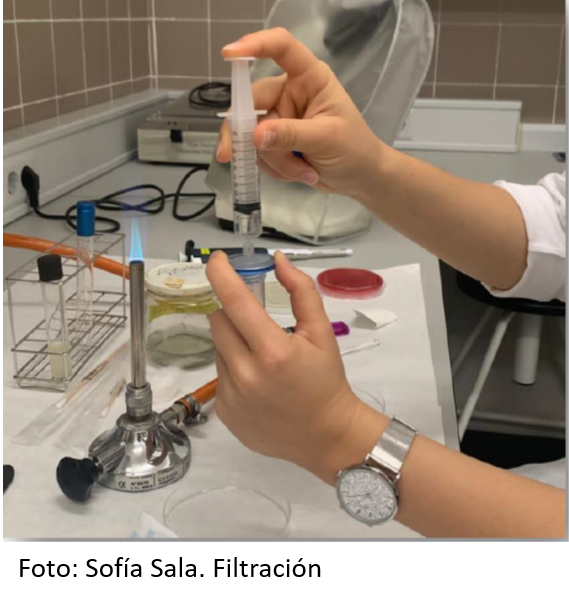Filtration
Filtration is a physical sterilization procedure for fluids in which the microorganisms are not destroyed; they are simply retained by a filter medium.
Filtration can only be used with fluids, whether they are liquid or gas. Normally it is used with solutions whose components are thermolabile and therefore they cannot be sterilized in the autoclave, for example, concentrated sugar, urea, vitamins, growth factor solutions, etc.
The disadvantage of filtration is that it is ineffective with certain microorganisms, such as viruses or the mycoplasmas. The former are much smaller than the size of the pore, which means that they are not retained. The latter are pleomorphic because a peptidoglycan cell wall is missing and they can adapt to the size of the pore, so they are not retained either (*).
The filter medium must be inert so that it does not react with the components of the solution, show mechanical resistance or have a smaller pore size than the microorganism that must be retained. Traditionally disposable nitrocellulose filters with a pore size of 0.45 or 0.22 microns are used. The fluid is pushed out by means of the pressure that is exerted by the syringe plunger or by using a Büchner flask and a vacuum system.
(*) As for the mycoplasmas there are special filters with a pore size of less than 0.1 microns that can retain them, but they will not be used in the laboratory.
Carrying out the lab practical
Open the filter holder but don’t take it out. Adjust the disposable syringe without the plunger. Take out 5 ml of the mixed culture with a pipette and put it inside the syringe. Put the filter on the mouth of a sterile test tube and push the culture through the filter using the plunger. Inoculate an aliquot of the filtrate on the nutrient agar plate and incubate it at 37ºC. After 24 hours of incubation the absence of growth is observed.
Innovative Teaching Activities Assistance – Vice Rector for Academic Affairs/ Enquiries and technical issues/contingencies – Tel: 96 522 2059 –

